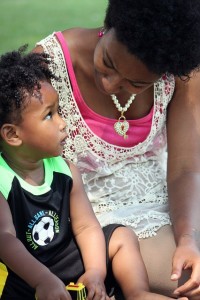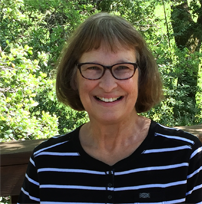Problem-Solving with Young Children
My young grandson loves listening to Lion King music when driving to and from preschool. Each time we get into the car he has me start the CD at the beginning. Immediately, when the dramatic music of flight from the kingdom begins, he asks why the music is so sad. Each time I respond with the same answer that the animals are sad because they have to leave their homes. I do not embellish on the fighting, the killing and the war that is part of the story; but he knows it is a sad situation. Finally, after talking about the Lion King story for several weeks, I asked my grandson what he thought was happening when he heard the sad music. He painted a vibrant picture with words of sadness, but still asked why. Part of my response to his question will be to take him to see the Lion King play. After reading John F. Barell’s book, “Why Are School Buses Always Yellow”, I was able to engage in the following critical thinking dialogue with my grandson by asking good questions:
When my grandson asked, “Grandma, why are they playing sad music?”
I responded by asking, “What makes you think the music is sad?” This encouraged my grandson to discuss what he heard in relation to what he already knows. When the music represents the animals flight from home, I asked “What do you think is happening during this music?” Then I asked, “How do people feel when they have to leave their homes or their schools?” My goal in asking these questions was to have my grandson describe his own feelings. In addition, John Barell’s book includes the following other reflective questions that can be asked:
- “Have you ever had a similar experience? Or one where you might play such sad music? Tell me about it.”
- “Let’s pretend I am an animal in the show. What do you wish to ask me about what’s going on?” If the answer is something you do not know, then what?
- “What might you ask me or one of the animals?”
- “How is your situation and that of the animals alike or different?” It is helpful to pose a question that would guide the child to make the comparison himself without providing the language.
By guiding my grandson to answer open ended questions about the sad music in the Lion King story, he was able to talk about how sad a person feels when they have a conflict at school or when they have had to move from a home that they loved to a different home. My grandson was able to relate his feelings to the sad music to his own life experiences and suggest answers to his questions. Happily, he now enjoys the Lion King CD without anxiety about the emotions conveyed by the music.
Please share with us challenging questions that your child has asked in the comments section below or by email on the contact page. We will share responses to your challenging questions in the reply section under this blog.
Enjoy discussions with your children!
Warm regards,
Mary Ann
Copyright (c) 2016 by GenParenting

Mary Ann Burke, Ed.D., Digital Education Expert, is a substitute distance learning teacher for Oak Grove School District in San Jose, California and the author of STUDENT-ENGAGED ASSESSMENT: Strategies to Empower All Learners (Rowman & Littlefield: 2020). Dr. Burke creates digital language arts and substitute teaching K – 12 activities for teachers and parents. She is the Cofounder of the Genparenting.com blog. Burke is the former Director II of Categorical & Special Projects for the Santa Clara County Office of Education that supports 31 school districts serving 272,321 students in Santa Clara County. She is also a previous Director – State & Federal Compliance for Oakland Unified School District, the former Director – Grantwriter for the Compton Unified School District, and was the initial VISTA Director for the Community Partnership Coalition in southern California. Much of her work focuses on creating innovative digital trainings and partnership programs for teachers and families to support students’ learning. These programs were featured as a best practice at a National Title I Conference, California’s Title I Conferences, AERA Conferences, an ASCD Conference, the NASSP Conference, and statewide educator conferences.

